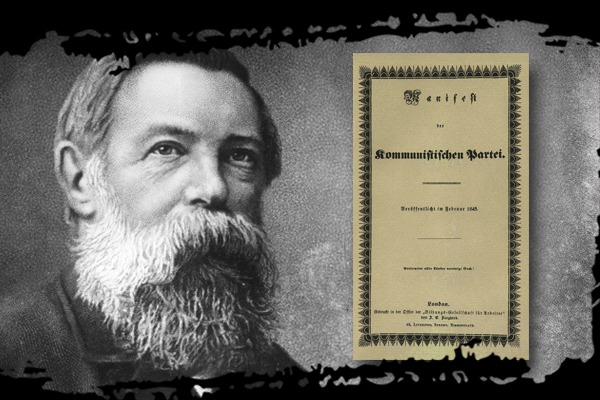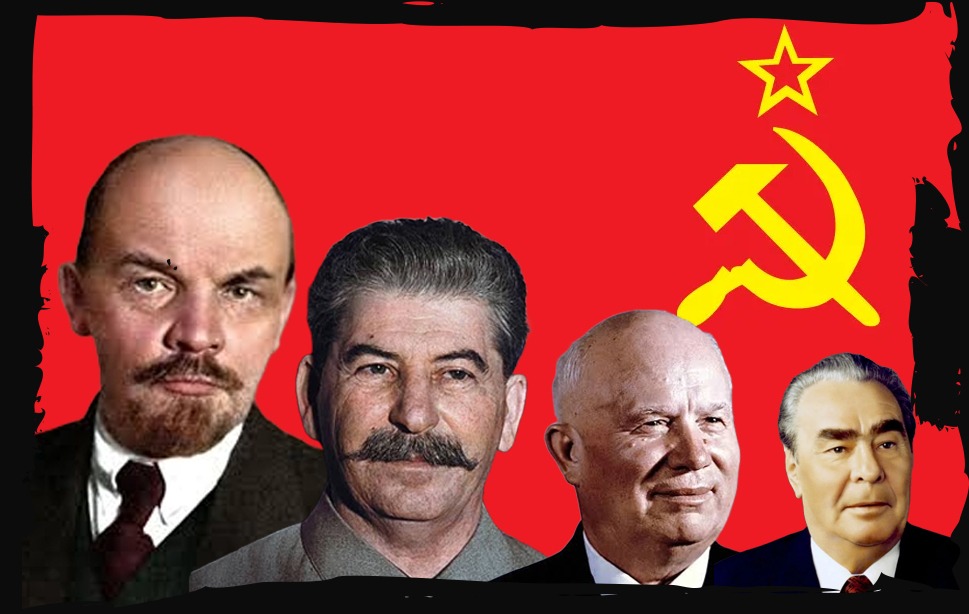Human society has progressed thus far because of the serious work done by innumerable scientists to understand our world in the proper way and take the knowledge so acquired, to the common people.
Right from the first men and women who found out the secret of igniting the ‘Fire’ to the modern space scientists, every one has contributed to this great journey of discovery and knowledge, which makes us, the Sapiens, the most advanced species on the earth.
Marx and Engels turned the wheels of history when they wrote Communist Manifesto in the year 1848 and paved way for the alternate economic models all over the world. Within a century the first socialist revolution took place and the idea of a welfare state became a universal idea, so much so that fierce opponents of socialism also started implementing these ideas just to keep the revolution away ! Marxism had become a powerful idea.
Although Marxism is an ideology that is named after the greatest intellectual of the twentieth century, Karl Marx, its domain includes the ideas of Friedrich Engels also. The two are inseparable.
Born on 19th November 1820, Fredric Engels wrote extensively on Natural Science. His major work was on the topic of ‘ Dialectics of Nature’. Engels salutes the ingenuity of the scientists when he writes in ‘Introduction to Dialectics of Nature’:
“ It was the greatest progressive revolution that mankind had so far experienced….. There was hardly any man of importance then living who had not travelled extensively, who did not command four or five languages, who did not shine in a number of fields.”
Giving a clear cut support to scientific temperament, Engels is clearly speaking about the importance of the efforts to seek the truth. In the same article Engels writes further,
“ It is to the highest credit of philosophy of the time that it did not let itself be led astray by the limited state of contemporary natural knowledge, that from Spinoza to the great French materialists – it insisted on explaining the world from the world itself and left the justification in detail to the natural science of the future”
We can understand the application of dialectics here. “ Explaining the world from world itself”. No heavenly intervention! Further in the article Engels pays rich tributes to Darwin who was his contemporary.
“…. it was characteristic that, almost simultaneously with Kant’s attack on the eternity of the solar system, C. F. Wolf in 1759 launched the first attack on the fixity of the species and proclaimed the theory of descent. But what in his case was still only a brilliant anticipation took firm shape in the hands of Oken. Theories of Lamarck and Baer was victoriously carried through by Darwin in 1859, exactly a hundred years later.”
It should be noted that no scientist works in isolation. Exchange of ideas between scientists helps the fast growth of ideas. Some people unnecessarily speak about the superiority of one group of people over other groups. The truth is that humanity developed together. Even at the nascent stage of development sapiens learnt from each other. Knowledge was passed through generations. None was ever born with a programmed brain!
Engels gives credit to every scientist who worked for the development of knowledge. His core area being dialectics of nature. Writing about the development of Man as different from the ape, Engels wrote,
“ Man too arises by differentiation. Not only individually, differentiated out of a single egg cell to the most complicated organism that nature produces, also historically. When after thousands of years of struggle the differentiation of hand from foot, and erect gait, were finally established, man became distinct from the ape and the basis was laid for the development of articulate speech and the mighty development of the brain that has since made the gulf between man and ape unbridgeable. The specialisation of the hand -this implies the tool, and the tool implies specifically human activity, the transforming reaction of man on nature, production.”
Being a materialist, Engels always based his writings on the material evidence in nature and in history. He opines that the only certainty is that the matter remains eternally the same in all its transformations.
While Darwin gave us the insight into the evolution of the Man ( Ape to Sapiens), it was Engels who explained to us the social journey of human society. In his book, ‘ Origin of family, private property and state’ Engels explains the material conditions that propelled humanity from the point of Savagery to the level of Capitalism through different stages of production relationship. He categorically rules out any divine intervention in these changes. In fact he is trying to explain the journey of human society from within.
Taking cognizance of the depiction of social conditions in the literature, Engels quotes Iliad written by Homer that reflects barbarism at its zenith. He tells us the story with the help of improved iron tools, the bellows and the potter’s wheel. Engels is able to connect the different dots between one stage of production relationship to the other stage. According to Engels even mythology takes the cognizance of these developments.
Some people erroneously talk of the ideal family in the bygone era. Engels breaks this myth too. With his systematic research on the subject of ‘Consanguineous marriage’, Engels traces the history of man-woman relationship through ages. The truth that he divulges is unbelievable. There is no common formula about man-woman relationship. Every society has its own ethics some times contradictory to others. Again a matter of evolution over the years.
Writing about how old methods go into oblivion without any one’s intention. Engels write –
“ The domestication of animals and the breeding of herds had developed a hitherto unsuspected source of wealth and created entirely new relationships. … With herds of horses, camels, donkeys, oxen, sheep, goats and pigs the advancing pastoral people -the Aryans in the Indian land of five rivers, acquired possessions demanding merely supervision and most elementary care in order to propagate in ever-increasing numbers and to yield the richest nutriment in milk and meat. All previous means of procuring food now sank into the background. Hunting, once a necessity, now became a luxury.”
We must thank Engels for making us understand that we all have come by the same journey of learning and understanding nature that is the ultimate source of all life!








